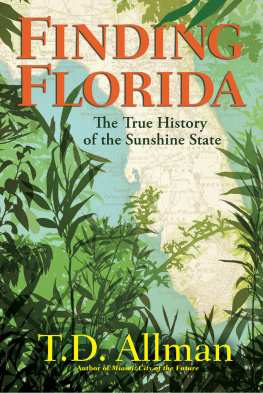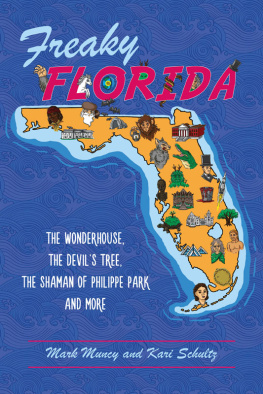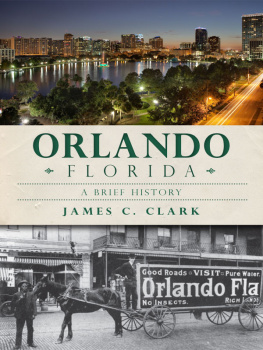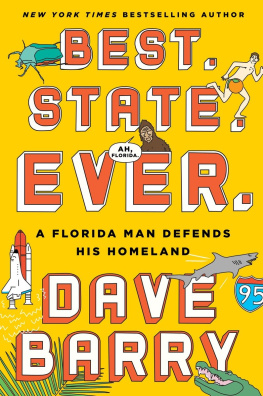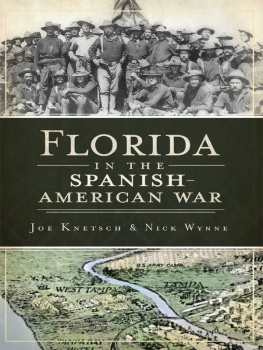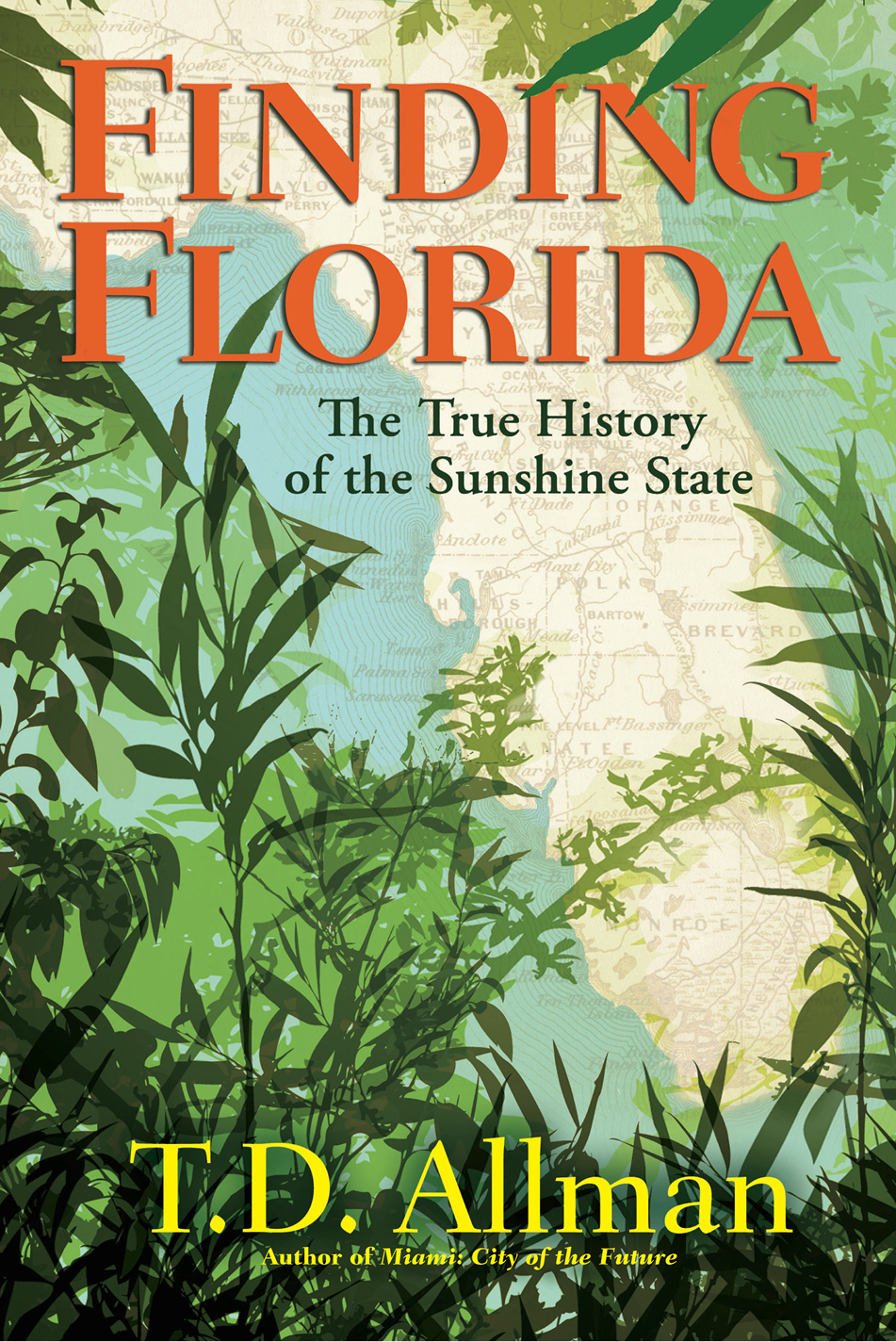
FINDING
FLORIDA
Also by T. D. Allman
Unmanifest Destiny
Miami: City of the Future
Rogue State
As Coauthor and in Anthologies
Cambodia: The Widening War in Indochina
Reporting Vietnam: American Journalism 19691975
Conservatism as Heresy: In Defence of Monarchy
Provence: An Inspired Anthology
The Florida Reader: Visions of Paradise
Spain: True Stories. The King Who Saved His Country
Why Bosnia?
Miami, the American Crossroad: A Centennial Journey, 18961996
Busted: Stone Cowboys, Narco-Lords and Washingtons War on Drugs
Killed: Great Journalism Too Hot to Print
These United States: Original Essays by Leading American Writers
Marguerite Yourcenar and the USA: From Prophecy to Protest
FINDING
FLORIDA
The True History
of the
Sunshine State
T. D. Allman

Atlantic Monthly Press
New York
Copyright 2013 T. D. Allman
All rights reserved. No part of this book may be reproduced in any form or
by any electronic or mechanical means, including information storage and
retrieval systems, without permission in writing from the publisher, except by
a reviewer, who may quote brief passages in a review. Scanning, uploading, and
electronic distribution of this book or the facilitation of such without the
permission of the publisher is prohibited. Please purchase only authorized
electronic editions, and do not participate in or encourage electronic piracy
of copyrighted materials. Your support of the authors rights is appreciated.
Any member of educational institutions wishing to photocopy part or all of
the work for classroom use, or anthology, should send inquiries to
Grove/Atlantic, Inc., 841 Broadway, New York, NY 10003 or
.
Published simultaneously in Canada
Printed in the United States of America
first edition
ISBN-13: 978-0-8021-2076-2
Atlantic Monthly Press
an imprint of Grove/Atlantic, Inc.
841 Broadway
New York, NY 10003
Distributed by Publishers Group West
www.groveatlantic.com
13 14 15 10 9 8 7 6 5 4 3 2 1
For
CHENGZHONG
Quid terras alio calientes sole mutamus?
Patria quis exul se quoque fugit?
Why do we flee to lands warmed by a foreign sun?
What fugitive from his own land can flee from himsel f ?
Horace (658 BC),
quoted by Michel de Montaigne (15331592)
Contents
Natures and Names
Invasive Species
Believe It or No3
The Johnny Appleseed of Pigs
Chert
The Fort, Not the Fountain
Coveting Florida
The West Florida Lone Star Butterfly Effect
The Unseen Foe
Americanization at Negro Fort
Floridas Fake History
Osceolas Head
Governor DuVals Conspiracy
Defined by Massacre
Jesups Capitulation
Alternative Floridians
Whistling Dixie
Metropolis of the Branded Hand
Disambiguation
Empowering the Betweenity
Triumph of Violence
King Ignorance
Project Future
Pioneers in Paradise
Swanee
The Total Triumph of Walter P. Fraser
Location, Location, Location
Florida Millennium
Theme Park Universe
Cities of the Future
A Fateful Convergence
No Escape from America
Prologue
NATURES AND NAMES
The sky opened up over Jacksonville. Wet vengeance descended: the rain that drowns civilizations and floats arks. The French, the first Europeans here, not the Spanish, would have said it was raining ropes along the waterfront esplanade, but right there beside the St. Johns River was a pavilion with bins and bins of books for sale in it. While the rain cannonballed I searched the bins. Maybe Id find some revealing book about Florida. In a way I did.
The book was The Pleasure of Finding Things Out, by the famous physicist Richard Feynman, a man with the kind of mind it takes to understand a place like Florida, where conventional concepts of how history works and why people do things break down. Professor Feynman, who lived from 1918 to 1988, won a Nobel Prize in Physics and was one of the creators of the atomic bomb. He also investigated the 1986 Challenger space shuttle disaster. Unlike everyone else, he got to the bottomor almost to the bottomof why all those astronauts were killed.
In Feynmans book I found an observation that unlocks the door to understanding Florida, along with lots of other things. In it he describes how his father was different from other boys fathers when it came to satisfying his sons curiosity. His friends fathers, Feynman relates, taught their sons the names of birds when they went on nature walks. Feynmans father taught him not to confuse names with knowledge. Once, he recalled, a playmate asked him the name of a bird they saw. When Feynman said he didnt know, the other kid laughed at him. Your father doesnt tell you anything, the kid said. But it was the opposite: my father had taught me, Feynman remembered:
Looking at a bird he says, Do you know what that bird is? Its a brown throated thrush; but in Portuguese its a... in Italian its a.... , in Chinese its a... , etcetera. Now, he says, you know... what the name of that bird is [but] youll know absolutely nothing whatever about the bird. You only know [what] humans in different places... call the bird. The understanding his father imparted to him set Richard Feynman on the road to amazing discoveries. He knew the difference between knowing the name of something, and knowing something, he remembered all those years later.
One of the things Florida teaches you is that calling it a river doesnt make it a river. Floridas St. Johns River is actually a series of accidentally interconnecting water systems. The portion of the St. Johns at Jacksonville is part of an ancient intra-coastal lagoon. Hydraulically speaking, it is more like an ocean inlet than a river. Knowing a river isnt a river doesnt change the surface of things. You still need a bridge to cross the St. Johns. Ships can still dock in it and (pollution permitting) fish can still swim it. But when you probe deeper, you find that the misunderstanding about the nature of that particular body of water is part of a much grander misunderstanding about the physical reality of Florida and its possibilities which has warped events and misguided people for hundreds of years. My favorite example is the search for gold. Florida is the only state which has no metals, yet that did not stop the Spanish from wreaking havoc on the place searching for gold there. By insisting on searching for gold where no gold existed, they set in motion a centuries-long series of irrational events, as explosive as a nuclear chain reaction.
Infesting everything in Florida is a fateful ambiguity of water and land. Until people started turning it into real estate, Florida was less Promised Land than anteroom of the sea, a watery place where land loses its meaning. In Florida tens of millions of people today build their houses and drive their cars across a crust of sea-shaped muck and rubble over which and beneath which flow enormous quantities of water, or they live on dredged-up soggy soil that until very recently was under water and, if nature had its way, would soon resubside.
Not so terribly long agoabout one hundred thousand years agoocean levels were about twenty-five feet higher than they are today. All of south Florida from Sarasota around to Palm Beach and then up the Atlantic coast to Jacksonville was under water. The future sites of Fort Lauderdale, Miami, Key West, and Fort Myers were deep under water and far out to sea from the shoreline Florida had back then. Its a thought to ponder as you read the headlines about climate change. Seas would not have to rise three hundred feet, or even fifty feet. A mere twenty feet would suffice to plunge beneath the sea the homes, highways, and cities where the great majority of all Floridians dwell today. If, instead of rising, ocean levels fell by two or three hundred feet, Florida would nearly double in land area. Florida could be everything; it could be nothing. That macrogeological equivocalness plays itself out in every Florida backyard. Fell that pine barren; build a theme park; construct your gated community. Then watch as the sinkholes swallow up your Florida fantasy, an alligator devours your fox terrier, and the palmetto bugsFloridaese for giant flying cockroachesinfest your life.
Next page
